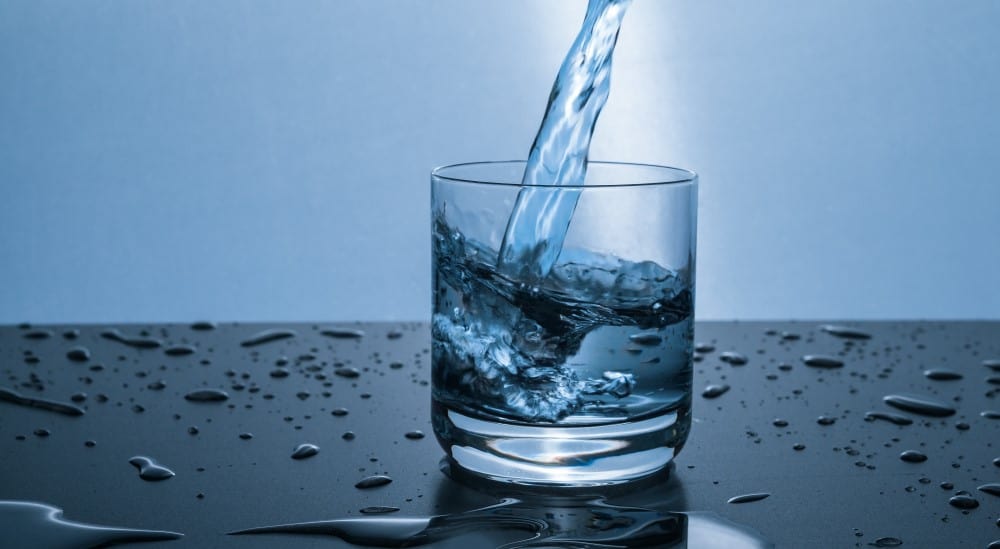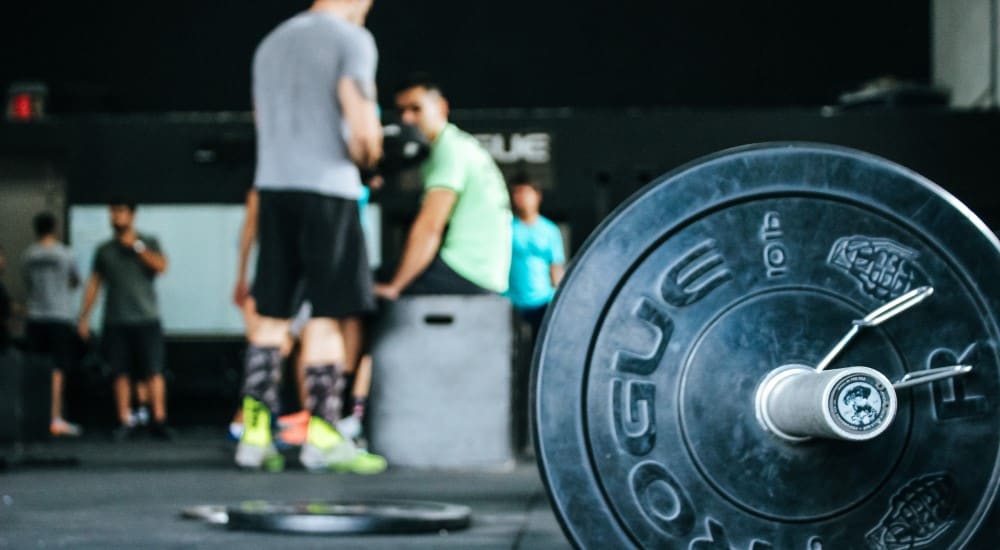We all make mistakes. It can happen to anyone and is simply human.
But we should learn from the mistakes we made in the past to do better in the future.
As much as in every other area of life, it also applies when we train our body to grow muscles.
However, making experiences to then learn from them takes a lot of time.
To make it easier for you, I summarized the most common mistakes that can slow down your muscle building process in this article.
Nutrition

Basic calorie needs
If you want to build a lot of muscle, you also have to eat a lot.
Each of us burns a certain amount of calories per day. Even lying on the couch, we burn calories.
We need these calories to keep our vital functions going.
However, if you eat less than you need, your body will try to compensate it using stored fat cells.
As soon as there are not enough left, your body is going to take the energy from your muscles. It comes to muscle loss.
To avoid it, estimate the daily amount of calories your body requires. You can find a lot of tools, helping you with that, online.
As soon as you know your daily needs add a calorie surplus.
This may differ from person to person, but I recommend a calorie surplus of about 300kcal.
Thin people face this problem in particular. They often lack the necessary “building materials” when trying to build muscle.
Fat reserves can thus be good support for effective muscle growth.
Tipp: Especially when you start hitting the gym it can be hard to keep an overview of your meals. To get a feeling for the amount your body needs I recommend you to track your meals either in a notebook or using one of many mobile apps.
Food after the training
One of the most important rules after the workout is eating. Especially after a hard workout, your body wants to convert glucose into glycogen to repair your muscles, making them grow.
I recommend a carbohydrate and high protein meal after your training to prevent your body from turning muscle mass into amino acids converting them into glucose.
Otherwise, your body is going to burn muscle mass.
Not enough protein
Our entire body is made of protein. Just as a building is made of many small bricks, our body is made of proteins.
If there are not enough bricks, not even the best working builder will be able to extend the building.
It is the same with our body: without enough protein, no additional muscle can be built.
If you want to be on the safe side, eat 1.5-2g protein per kg body weight per day. For a person of 80kg, this would sum up to 120-160g of protein per day.
For beginners, 1g of protein per kg of body weight should be enough.
You will be able to reach these levels quite well by consuming 20-30g protein per meal and high-protein snacks such as quark, eggs or simply protein shake in between.
Sugar
Sugar does not actively reduce muscle growth, instead, sugar encourages a passive component that plays an important role.
As soon as your body absorbs sugar, your blood sugar level is going to rise.
Any product that contains sugar is able to trick your body with peaking blood sugar levels to be full.
As a result, you might miss other important meals.
If your sugar consumption stops you from eating muscle-building amino acids in form of protein-rich food, you’re denying your body what it needs to build muscle.
Lack of vitamin D
Many people suffer vitamin D deficiency, without knowing it.
Depending on our location we might not spend enough time under the sun.
Especially during colder seasons, when the sun is shining rarely, we are covered in clothing and do not absorb enough vitamin D.
However, vitamin D plays an important role in order to build muscles efficiently (If you want to know more about the benefits of vitamin D read our article here).
I recommend vitamin D supplementation of 2000 IU – 4000 IU per day during the colder months.
During the warmer months or at places with a lot of sun, vitamin D supplementation is barely necessary.
Hydration

You need to drink more!
It might be one of the first rules regarding nutrition, everyone learns in body building: 1.5 to 2 grams of protein per kilogram of body weight.
This is the amount of protein your body needs in order to optimally build muscle mass.
But if you track your protein consumption, you should be equally concerned about how much you drink:
The rule only applies if your body can utilize the protein!
A protein-rich meal has a mild diuretic effect (it increases your desire to pee!).
When your body converts the proteins into energy, it has to release the nitrogen components from the molecules, requiring a lot of water.
Therefore, always remember to drink enough water. I recommend you to drink at least 2.5 liters every day. At the days you work out or do other sport I recommend 4 to 5 liters.
Having several smaller meals protein-rich meals instead of only 2 or 3 bigger ones can as well support the process and will disburden your organs at the same time.
Training

Core exercises instead of isolation training
Instead of exercises that isolate certain muscles of your bodie as for example many machines or bicep curls do, I recommend shifting the focus on core exercises.
Core exercises exercise your body in its natural functions. Not only do these exercises work efficiently, because they address many muscles. In addition, these exercises address deep-seated muscles that are important for your coordination and balance.
As a side effect, you are preventing potential muscle imbalances at the same time.
Nothing speaks against isolation exercises. They can be great additives but should not form an entire training.
Common core exercises are for example bench press, squats, pull-ups, barbell rows or deadlifts.
Light training and missing increase
This might not apply in the beginning of your fitness career, but strength training must be exhausting!
It is that simple.
A continuous increase in your training is the key.
Aim for 3 sets of 8 – 12 reps with the same weight. Once you’ve done that, try to complete a fourth set.
Depending on your progress you can add an additional set or increase the weight, again aiming for only 3 sets.
And so on – you get the idea.
Bouncing weights instead of using muscle power
I am 100% sure that every single one of us has already made the mistake.
Bouncing the barbell of our chest, swinging our arms while curling, bouncing with our knees during lateral raises
We all know it.
It is a clear sign of using too much weight and should be avoided any time!
Much more important than the weight is the execution.
Take less weight and pay attention to a clean execution! You should be able to stop the weight at any point of the movement without a lot of delays.
It is also a lot healthier for your joints.
Incomplete movements
Do not try to facilitate your exercises through partial movement. They will not become much easier but infective.
Always execute the complete movement.
For example, when benching, lower the barbell until it almost hits the chest. Do not push it up halfway. Then push the barbell up until your arms are almost stretched. Keep a slight angle in your elbows.
With partial movements, you risk to not stretch your muscles properly which may shorten them.
Pay attention to the execution of your fitness exercises. Every rep matters.
It’s best to have exercises explained by others with experience. You can find a lot of knowledge online as well.
Just be aware there is a lot of superficial knowledge circulating.
Your breaks are too long
If your breaks take too long, your muscles cool down. They need to be brought back to their operating temperature for optimal muscle building.
You are wasting valuable energy you could better invest in exercise intensity.
Try taking active breaks by walking around and letting your arms circle to recover even faster.
Your muscle needs a maximum of 2 to 3 minutes to regain contractibility.
Unilateral exercises
If you only train your chest and biceps but neglect your other muscles, you will never become a better athlete.
Hull and legs are the basis for more strength in many muscle building exercises. Continue reading to find out why!
Avoid too much machine training and focus on the core exercises.
The more functional the exercise, the better.
Skipping leg day!!!
Those of us that implement a lot of free dumb- and barbell exercises in their training know the importance of proper leg workouts to build muscle.
Your legs give you a stable base.
In addition, your leg muscles are the largest muscle group of your body.
As soon as heavy dumbbells are lifted, almost the entire body tenses up!
For example: While benching your gluteal muscle and parts of your legs are automatically activated. This gives your body more stability and better weight management.
Consequently, weak leg muscles limit the amount of weight you can push during an upper body workout. Training your upper body is thus more time consuming and laborious.
Leg training activates growth hormones and calorie turnover
Any kind of physical effort means stress for our body which affects the release of growth hormones.
The more muscle mass is energized, the more growth hormones are released.
Since the leg muscles build the largest muscle group in your body, exercising them has a particularly positive effect on growth hormone secretion.
Skip leg training and you are surely going to miss a lot of growth potential.
Regeneration and External Influences

Regeneration between workouts
Our body needs 2 – 3 days to recover from the stress factors of a workout until it again reaches full performance.
Train the same muscle too early and you will even risk losing performance and muscle mass.
Wait too long and you may miss the full potential for improvement through efficient muscle growth.
Ideally, you should therefore take 1-2 days off between 2 training sessions that exercise the same muscle group.
Depending on your split breaks can therefore variate.
2 – 3 full-body workouts per week are for example most effective.
Lack of sleep
Your body does not build muscle during training, but while you’re not training – especially in your sleep!
Always keep that in mind.
There is nothing more important than granting your body good rest after each training.
If you do not sleep well, your muscles can not recover enough.
Also: If you do not sleep well, your body will not be able to fully recover, and you will usually train with lower intensity. Your muscles will receive fewer growth impulses.
I recommend getting between 7 – 9 hours of sleep.
Keep in mind that late intake of food, caffeine and most training boosters may reduce your sleep quality!
Physical activities, movies and anything else that causes stress has an equal effect.
Too much cardio training
Cardio training can be a great addition to your workouts. It burns extra fat or helps your body to generate faster.
Too much cardio training, however, is counterproductive for your muscle growth.
Make sure you cover your daily calorie needs. Otherwise, your body is going to burn muscle mass to generate energy.
Alcohol, cigarettes and other drugs
Whether legal or illegal, it is not a secret that drugs have amazing potential to mess up our body.
Drinking alcohol on a regular basis decreases your testosterone level, having a negative effect on your muscle growth.
The reason for that is your liver, focusing on breaking down the alcohol which prevents it from doing its other job: Creating the proteins that regulate the amount of free testosterone in our body.
Did you know that smoking has a negative effect on muscle growth as well?
Cigarettes are not just unhealthy, the smoke sends carbon monoxide into your body, preventing your muscles from getting enough oxygen to grow.
The less oxygen your muscle gets, the less effective the contractions are.
I do not want to generalize other drugs as their effects on the body are an entire subject for itself.
What I can say though, is that especially party drugs benefit circumstances such as suppressed sleep, hunger or thirst. Partying all night may cause exhaustion or dehydration that will prevent your muscles from regenerating.
If you are interested about the effects of cannabis on muscle growth check out our article here!
I know that for many of us, and I am definitely not excluding myself here, total abstinence can be difficult to utopian.
In my opinion, a drink (or smoke) with good friends can even have a positive effect on life quality.
It is all about a good balance.
Comparing yourself to others
Every person is different, each of us an individual!
Thus different things apply to you than to other people.
Do not compare yourself too much with others.
Whether training techniques, split, or nutrition – what may work for others does not automatically apply to you.
Exchanging knowledge with others brings great opportunities but you have to go your own way to a certain extent.
Find out what works best for you!
Can you relate anything I mentioned to yourself and do you know other factors that may influence muscle growth?
Let us know in the comments!
Cheers,
Chris




